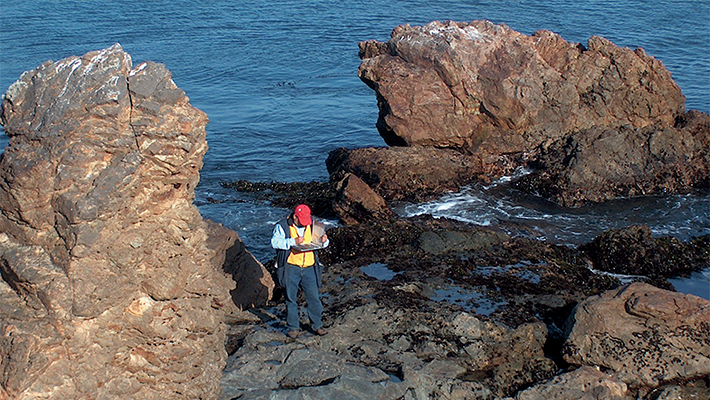

Degrees and Programs
- Bachelor of Science in Geology with an option to concentrate studies in Applied Geology
- Those majoring in Liberal Studies can complete their concentration in Earth Science
- Geology minor
Discover what you can learn and where a geology major can take you.
Geology is the study of the structure, processes, geological history and evolutionary history of the earth. Geology studies the movement of continents, the rise and wearing down of mountains, the atmosphere, the hydrologic cycle, the evolution of dinosaurs, and the effects of earthquakes and volcanic eruptions. Geology is also an applied science concerned with the management of water resources, the exploration and extraction of energy resources, environmental cleanup, and the assessment of ground conditions for construction.
Interests
- Enjoying the outdoors
- Curious about the natural world
- Using tools and electronic equipment
- Hiking, canoeing, camping and rock collecting
- Making observations and applying simple math
Learn
- Classify, identify and interpret geologic materials (rocks, minerals, and fossils)
- Reconstruct the geologic history of an area
- Determine the direction of flow, availability and quality of groundwater resources
- Develop a deep understanding of volcanoes and earthquakes
Go!
- Environmental geology
- Hydrogeology and development of water resources
- Engineering geology and seismic engineering
- Petroleum geology
- Mineral exploration
- Environmental law
- Research and education
Ashley Loogman
Geology Alumna

Geology Career Opportunities
- Lawrence Livermore National Laboratory
- UC Merced
- Neil O. Anderson and Associates
- ENGEO Inc.
- Ground Zero
- Apex
- Condor Earth Technologies
- Department of Water Resources
- California Geological Survey
- U.S. Army Corps of Engineers
- U.S. Bureau of Reclamation
Updated: February 19, 2026